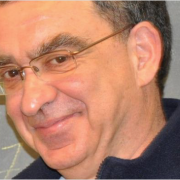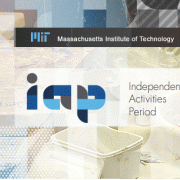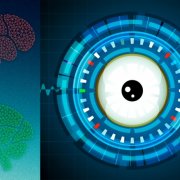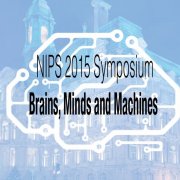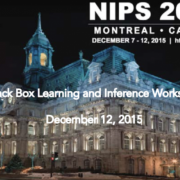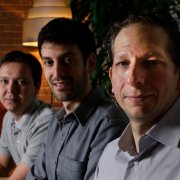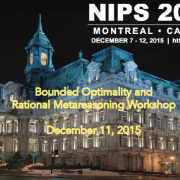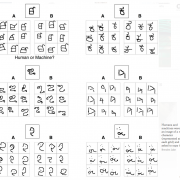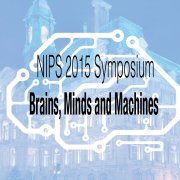January 11, 2016 - 12:00 am
Greg Hale (CBMM Application Developer) will be leading two activities during MIT IAP 2016. Everyone in the CBMM community is invited to attend.
Do you have a dataset that you want to share, an algorithm that predicts diseases from gene mutations, or a neat way to visualize data? Maybe these...
Do you have a dataset that you want to share, an algorithm that predicts diseases from gene mutations, or a neat way to visualize data? Maybe these...
January 8, 2016 - 9:30 am
A new article in the Italian news paper "La Stampa" features an interview with Prof. Tomaso Poggio, where the topic of ethical challenges in artificial intelligence and genetic engineering are addressed.
January 4, 2016 - 12:00 am
Greg Hale (CBMM Application Developer) will be leading two activities during MIT IAP 2016. Everyone in the CBMM community is invited to attend.
Give version control a try, in a laid back environment that's about you, your experiments, your class projects, etc. Getting over the hump with git can...
Give version control a try, in a laid back environment that's about you, your experiments, your class projects, etc. Getting over the hump with git can...
December 23, 2015 - 11:15 am
Algorithms could learn to recognize objects from a few examples, not millions; may better model human cognition.
Larry Hardesty | MIT News Office
December 23, 2015
An excerpt for the article:
"Object-recognition systems are beginning to get pretty good — and in the case of Facebook’s face-recognition algorithms, frighteningly good.
But object-recognition systems are typically trained on millions of visual examples, which is a far cry from how...
December 21, 2015 - 11:30 am
CBMM would like to thank Prof. Tomaso Poggio, Prof. Gabriel Kreiman, and Dr. Max Nickel, for making this year's symposium at NIPS possible. The symposium was a huge success.
A special thank you to all of the symposium speakers!
Prof. Tomaso Poggio, Dr. Christof Koch, Prof. Gabriel Kreiman, Dr. Andrew Saxe, Prof. Surya Ganguli, Dr. Demis Hassabis, Prof. Josh Tenenbaum, Prof. Gary Marcus, and Dr. Terrence Sejnowski.
A thank you from...
December 17, 2015 - 12:45 pm
By Anne Trafton | MIT News Office
December 16, 2015
New and exciting research has led to scientists identifying a neural population highly selective for music.
“It has been the subject of widespread speculation,” says Josh McDermott, the Frederick A. and Carole J. Middleton Assistant Professor of Neuroscience in the Department of Brain and Cognitive Sciences at MIT. “One of the core debates surrounding music is to what extent it has...
December 16, 2015 - 4:30 pm
Gabriel Kreiman
Thrust 2 Projects
Hanlin Tang and Bill Lotter - Pattern completion: behavior, physiology and computation
Matt Wilson - Presentation of the Penagos-Gershman research collaboration
Ed Boyden: Technologies for Mapping the Circuits and Mechanisms of Intelligence
Please note change in start time, this...
Hanlin Tang and Bill Lotter - Pattern completion: behavior, physiology and computation
Matt Wilson - Presentation of the Penagos-Gershman research collaboration
Ed Boyden: Technologies for Mapping the Circuits and Mechanisms of Intelligence
Please note change in start time, this...
December 16, 2015 - 3:00 pm
MIT, Bldg. 46 Room 4062
MIT Building 46 Postdoc Career Development Event
Topic: Postdoc practice chalk talk
Panel: Kay Tye, Mark Harnett, Michale Fee (MIT)
Wed. Dec. 16, 5:00 to 16:30.Location: 46-4062
Topic: Postdoc practice chalk talk
Panel: Kay Tye, Mark Harnett, Michale Fee (MIT)
Wed. Dec. 16, 5:00 to 16:30.Location: 46-4062
December 12, 2015 - 8:30 am
Prof. Joshua Tenenbaum (CBMM Research Thrust Leader) and Tejas Kulkarni (CBMM Siemens Graduate Fellow) are helping to organize the NIPS 2015 Workshop on Black Box Learning and Inference.
Overview
Probabilistic models have traditionally co-evolved with tailored algorithms for efficient learning...
Overview
Probabilistic models have traditionally co-evolved with tailored algorithms for efficient learning...
December 11, 2015 - 9:45 am
The recent Science paper, "Human-level concept learning through probabilistic program induction" by Prof. Tenenbaum, Brenden M. Lake and Ruslan Salakhutdinov, has received press coverage from the New York Times.
Excerpt from the New York Times:
"Computer researchers reported artificial-intelligence advances on Thursday that surpassed human capabilities for a narrow set of vision-related tasks.
The improvements are noteworthy because so-called...
December 11, 2015 - 9:30 am
"Human-level concept learning through probabilistic program induction" by Brenden M. Lake, Ruslan Salakhutdinov, and Joshua B. Tenenbaum has been published in the Dec. 11, 2015 issue of Science. Their work was also selected for the cover image.
Abstract: People learning new concepts can often generalize successfully from just a single example, yet machine learning algorithms typically require tens or hundreds of examples to perform with similar...
December 11, 2015 - 8:30 am
Prof. Sam Gershman (CBMM, Harvard) and Prof Noah Goodman (CBMM, Stanford)
We are pleased to announce a NIPS workshop on Bounded Optimality and Rational Metareasoning, which will take place on December 11, 2015, in Montreal, Canada.
This workshop brings together computer scientists working on...
We are pleased to announce a NIPS workshop on Bounded Optimality and Rational Metareasoning, which will take place on December 11, 2015, in Montreal, Canada.
This workshop brings together computer scientists working on...
December 10, 2015 - 4:00 pm
by Joel Achenbach
The Washington Post
December 10, 2015
An excerpt from the article:
"Machines and humans learn differently. This has been a central fact of Artificial Intelligence research for decades. If you cram enough data into a machine, and let the algorithms grind away tirelessly, the computer can detect a pattern, produce a desired outcome and perhaps beat a grandmaster in chess.
Human intelligence is faster, quirkier and more nimble. We...
December 10, 2015 - 4:00 pm
By John Markoff
Dec. 10, 2015
Excerpt: "Computer researchers reported artificial-intelligence advances on Thursday that surpassed human capabilities for a narrow set of vision-related tasks.
The improvements are noteworthy because so-called machine-vision systems are becoming commonplace in many aspects of life, including car-safety systems that detect pedestrians and bicyclists, as well as in video game controls, Internet search and factory...
December 10, 2015 - 3:00 pm
If you are more interested in the engineering of tomorrow -- and the science of today -- rather than in today's engineering practices....come to us!
The Center for Brains, Minds and Machines (CBMM) will be coordinating one of the three symposia at the 29th Annual Conference on Neural Information...


